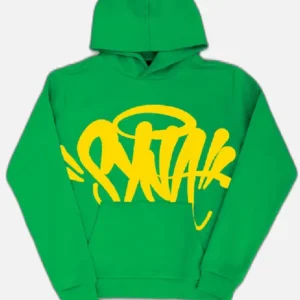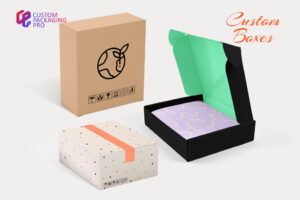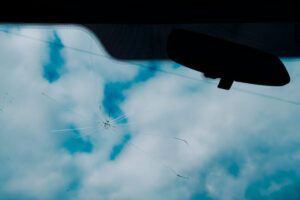
Embroidery enthusiasts know the magic of transforming simple images into stunning stitched designs. If you work with Melco embroidery machines, you need your designs in EXP format – the native file type that makes these machines hum with precision. Learning how to Convert JPG to EXP is an essential skill that unlocks this transformation, allowing you to turn photographs, logos, or digital artwork into professional-quality embroidery. This comprehensive guide will walk you through the entire process from selecting the right software to troubleshooting common issues, whether you’re personalizing gifts for loved ones or running a full-scale professional embroidery business. We’ll cover everything from basic auto-digitizing techniques to advanced manual adjustments that give you complete control over your final stitched results.
Why Convert JPG to EXP?
EXP files contain the special language Melco machines understand:
- Precise stitch coordinates and types
- Exact thread color sequences
- Optimal stitch density settings
- Machine-specific embroidery instructions
When you convert properly:
✔ Designs stitch out exactly as envisioned
✔ Machines run smoother with fewer errors
✔ You maintain crisp details in final products
✔ Professional results become repeatable
Preparing Your JPG for Conversion
Not all images convert equally well. Follow these preparation steps:
Choose the Right Image
- High resolution (300+ DPI) works best
- Simple compositions with clear edges
- Good contrast between elements
- Minimal fine details (convert better to stitches)
Optimize Your File
- Crop to focus on main subject
- Adjust brightness/contrast if needed
- Remove busy backgrounds
- Save as highest quality JPG
Top 5 Tools to Convert JPG to EXP
1. Melco DesignShop (Official Software)
- Direct EXP conversion with perfect compatibility
- Advanced editing capabilities
- Includes stitch simulator preview
- Premium price but worth it for professionals
2. Embrilliance Platform
- User-friendly interface
- Good auto-digitizing features
- Affordable tiered pricing
- Mac and Windows compatible
3. Hatch Embroidery
- Powerful auto and manual digitizing
- Excellent stitch quality output
- 30-day free trial available
- Steeper learning curve
4. SewArt
- Budget-friendly option
- Simple auto-conversion
- Great for beginners
- Limited advanced controls
5. Online Converters
- No software installation
- Quick for simple designs
- Privacy concerns for business use
- Limited customization
Step-by-Step Conversion Process
Step 1: Import Your JPG
Open your chosen software and import the prepared JPG file. Most programs allow simple drag-and-drop.
Step 2: Set Design Parameters
- Select your target EXP format version
- Choose appropriate hoop size
- Set maximum stitch count limits
Step 3: Digitize the Image
- Auto-digitize for quick results
- Or manually trace important edges
- Assign stitch types to different areas
Step 4: Refine the Design
- Adjust stitch density (4-6 stitches/mm ideal)
- Set proper underlay stitches
- Optimize thread color changes
Step 5: Export as EXP
- Select EXP as output format
- Verify all settings
- Save to USB or direct machine transfer
Pro Tips for Best Results
- Start with vector art when possible – converts cleaner than JPGs
- Simplify complex areas – too much detail won’t stitch well
- Test on scrap fabric before final production
- Adjust for fabric type – denser stitches for stretchy materials
- Keep original files – you may need to reconvert later
Troubleshooting Common Issues
Problem: Design looks distorted
Solution: Check original image proportions before converting
Problem: Stitches appear too dense
Solution: Reduce stitch density in software settings
Problem: Thread breaks occur
Solution: Increase stitch length slightly
Problem: Colors don’t match
Solution: Manually set thread palette before exporting
Free vs Paid Conversion Options
Free converters work when:
- You have simple designs
- Only need occasional conversions
- Can accept some quality limitations
Invest in paid software if you:
- Run a professional embroidery business
- Need batch processing capabilities
- Require advanced editing tools
- Want guaranteed EXP compatibility
The Future of JPG to EXP Conversion
Emerging technologies are changing the game:
- AI-powered auto-digitizing improves accuracy
- Cloud conversion enables mobile workflows
- Machine learning predicts optimal stitch patterns
- 3D previews show final results before stitching
Final Recommendations
For hobbyists just starting their embroidery journey: Begin with user-friendly options like SewArt or take advantage of free trial versions to master how to Convert JPG to PES and EXP files. These accessible tools provide a gentle introduction to file conversion while still delivering quality results for personal projects and gifts. As you gain confidence, you’ll appreciate how these fundamental skills open up new creative possibilities with your embroidery machine.
For small businesses and growing embroidery operations: Embrilliance offers the perfect balance of affordability and functionality, especially when you need to Convert JPG to PES along with other popular formats like DST and EXP. Its versatile platform handles everything from simple monograms to complex multi-color designs, making it ideal for entrepreneurs who need professional results without enterprise-level pricing.
For professional shops and high-volume production: The investment in Melco DesignShop pays dividends through its unparalleled precision when you Convert JPG to PES and other production-grade formats. Industry professionals will appreciate the advanced editing tools, batch processing capabilities, and perfect machine compatibility that ensures every design stitches out flawlessly, even under tight deadlines.
Remember – quality conversion saves thread, time, and frustration while protecting your valuable materials. Whether you need to Convert JPG to PES for Brother machines, EXP for Melco systems, or any other specialty format, taking the time to properly prepare your files means your embroidery machine will reward you with perfect stitches every time. The right conversion approach leads to smoother machine operation, longer equipment life, and most importantly – stunning finished products that keep customers coming back.




